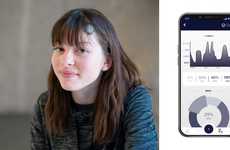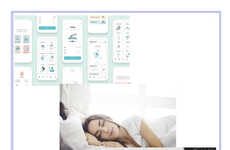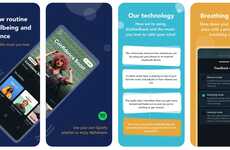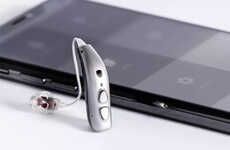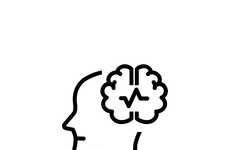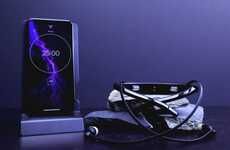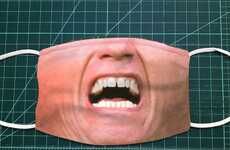
Musicogenic Epilepsy
Stacey Gayle is a Canadian woman living in Queens, NY who suffers from a very rare malady - musicogenic epilepsy. Her epileptic seizures are triggered by some music. In her case it was Sean Paul's "Temperature" which caused her to pass out and go into a seizure. She first noticed the pattern when the song became a hit single and was played often at the parties she attended. Just the opening bars would quickly send her into a seizure. Following her hunch, she tried playing the song at home, it did send her to the floor and then back to her neurologist. None of the medications he tried did any good.
She was then referred to an epilepsy monitoring unit equipped with video and a cap full of electrodes for her. She never had any seizures even when the doctors took her off the drugs. Finally she asked them to hand over her iPod. With "Temperature" on repeat, she seized three times during that night as she slept. Unfortunately, for such a music lover, she discovered other songs like Rihanna's "Umbrella" and Sean Kingston's "Beautiful Girl" also caused her problems. She had to drop out of school because even personalized ring tones from cell phones triggered her seizures too.
Short of brain surgery to remove all the affected brain cells, the only thing she could do was keep to a music-free but homebound life which proved intolerable. "Trust me," she says, "music is everywhere—I never realized that until I started getting seizures." She eventually decided to undergo surgery where they removed an egg-size part of the brain the surgeons mapped and determined to be the location of hyperactive cells in the region which processes sound.
There is a happy ending. She is now seizure free, enjoys all sorts of music and is back in school. More importantly, she suffered no side effects from the surgical intervention. She was only the fifth person ever with musicogenic epilepsy to undergo such an operation.
She was then referred to an epilepsy monitoring unit equipped with video and a cap full of electrodes for her. She never had any seizures even when the doctors took her off the drugs. Finally she asked them to hand over her iPod. With "Temperature" on repeat, she seized three times during that night as she slept. Unfortunately, for such a music lover, she discovered other songs like Rihanna's "Umbrella" and Sean Kingston's "Beautiful Girl" also caused her problems. She had to drop out of school because even personalized ring tones from cell phones triggered her seizures too.
Short of brain surgery to remove all the affected brain cells, the only thing she could do was keep to a music-free but homebound life which proved intolerable. "Trust me," she says, "music is everywhere—I never realized that until I started getting seizures." She eventually decided to undergo surgery where they removed an egg-size part of the brain the surgeons mapped and determined to be the location of hyperactive cells in the region which processes sound.
There is a happy ending. She is now seizure free, enjoys all sorts of music and is back in school. More importantly, she suffered no side effects from the surgical intervention. She was only the fifth person ever with musicogenic epilepsy to undergo such an operation.
Trend Themes
1. Musicogenic Epilepsy - Opportunities for developing personalized music therapies to treat and manage musicogenic epilepsy.
2. Disruptive Therapies - Innovative treatments that combine music therapy and neurological interventions to address musicogenic epilepsy.
3. Technology for Monitoring - Advancements in video and EEG monitoring technology for better detection and understanding of music-triggered seizures.
Industry Implications
1. Healthcare - Healthcare industry can explore new treatments and interventions addressing musicogenic epilepsy.
2. Music Therapy - Music therapy industry has the potential to develop specialized techniques and protocols for individuals with musicogenic epilepsy.
3. Neurology - Neurology field can research and develop targeted approaches to identify and treat conditions like musicogenic epilepsy.
0.7
Score
Popularity
Activity
Freshness


